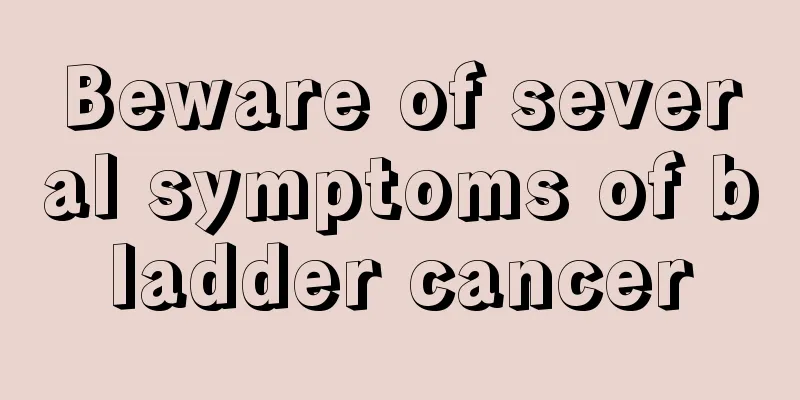Let’s talk about the symptoms of prostate cancer?

|
Prostate cancer is a common male disease. The symptoms of this disease can be mainly divided into latent, hidden and clinical types. Therefore, we must pay attention to the occurrence of the disease and receive treatment in time to recover health as soon as possible. Let's first understand what are the symptoms of prostate cancer? 1. Symptoms of meridian blockage during the latent period Prostate cancer is not formed in one day. When there are no symptoms, the meridians are already blocked. As the disease progresses, the meridian blockage becomes more and more serious, and the stagnation will increase and become hard. In the early stage of the patient, a blockage mass will form in the bladder meridian. At this time, the mass is hidden deep, soft in texture, and small in range. 2. Introduction to latent symptoms 1. Symptoms of meridian blockage: Meridian diagnosis and examination based on the meridian constitution tumor elimination method found that prostate cancer patients had meridian blockage and congestion forming nodules in the back and abdomen, legs and upper limbs, neck and shoulders, especially in the back and abdomen where the bladder meridian passes, there are larger nodules. 2. Compression symptoms: The gradually enlarged prostate gland compresses the urethra and can cause progressive dysuria, which is manifested as thin urine stream, short range, slow urine flow, interrupted urine flow, dripping after urination, incomplete urination, labored urination, frequent urination, urgency, increased nocturia, and even urinary incontinence. Tumor compression of the rectum can cause dysuria or intestinal obstruction, compression of the vas deferens causing lack of ejaculation, compression of nerves causing perineal pain, and radiating to the sciatic nerve. 3. Clinical symptoms and metastasis 1. Urinary disorders: 80% of patients have progressive urinary difficulties, thinning or deviated urine flow, bifurcated urine flow, prolonged urination, frequent urination, urgency, pain, and a feeling of incomplete urination caused by cancer. In severe cases, urine dripping and urine retention occur. Only 3% of patients have hematuria. 2. Pain: Pain in the waist, sacrum, buttocks, hips, pelvis, and sciatica is common and severe and unbearable. It may be caused by cancer metastasis to the bones or invasion of nerves or hydronephrosis and kidney infection. About 31% of patients experience pain. 3. Metastasis symptoms: Metastasis is very common in prostate cancer patients. About 1/3 or even 2/3 of patients have lymph node metastasis when they first see a doctor, mostly in the iliac, iliac, waist, groin and other parts. It can cause enlarged lymph nodes in the corresponding parts and swelling of the lower limbs. Hematogenous metastasis is more common in bones (such as pelvis, sacrum, lumbar spine, upper femur, etc.) and internal organs (such as lungs, liver, brain, adrenal glands, testicles, etc.). This is also an early symptom of prostate cancer. 4. Systemic symptoms: Because the pain affects diet, sleep and spirit, after long-term torture, the whole body condition becomes increasingly weak, with weight loss and fatigue, progressive anemia, cachexia or renal failure. The above are the symptoms of prostate cancer at various stages that I introduced to you. I believe you have already understood the harm that this disease does to our body. Therefore, we must pay great attention to the health of our lives, develop a good lifestyle, eat more foods that are good for the body, and avoid unhealthy lifestyles. |
<<: How to care after prostate cancer surgery
>>: Symptoms of worsening prostate cancer Four foods to prevent prostate cancer
Recommend
Small domestic plants can take people's lives
Don't underestimate the attractive-looking fl...
Will heat stroke cause convulsions
Heatstroke is more common in summer, so certain t...
Why is blood uric acid high? What to pay attention to
Blood uric acid is the uric acid in the human ser...
Why is there no change after chemotherapy for small cell lung cancer?
Why is there no change after chemotherapy for sma...
How to care after colon cancer surgery
How to care after colon cancer surgery? After col...
Are there any side effects of leaning your legs against the wall at 90 degrees?
If your legs are often against the wall at 90 deg...
What should liver cancer patients eat? 4 early symptoms of liver cancer
We all know that diet is the main source of nutri...
How to effectively prevent fibroids
Everyone has a carcinogenic factor in their body....
How do I know if I have lung cancer? If you have these 4 abnormalities in your body, it may be lung cancer
When I was watching the news, I found a case of l...
What can’t be put in the microwave?
Now that people's material living standards h...
What is the cause of rectal cancer
Rectal cancer is one of the most common malignant...
What is the right sleeping posture when lying on your back?
Everyone has their favorite sleeping position, ei...
My chest feels stuffy and I always want to breathe heavily
Feeling short of breath in the chest and always w...
Things you should pay attention to in the treatment of breast cancer
If breast cancer is diagnosed, active treatment m...
What are some tips for removing black dental plaque?
Black dental plaque not only affects the cleanlin...









